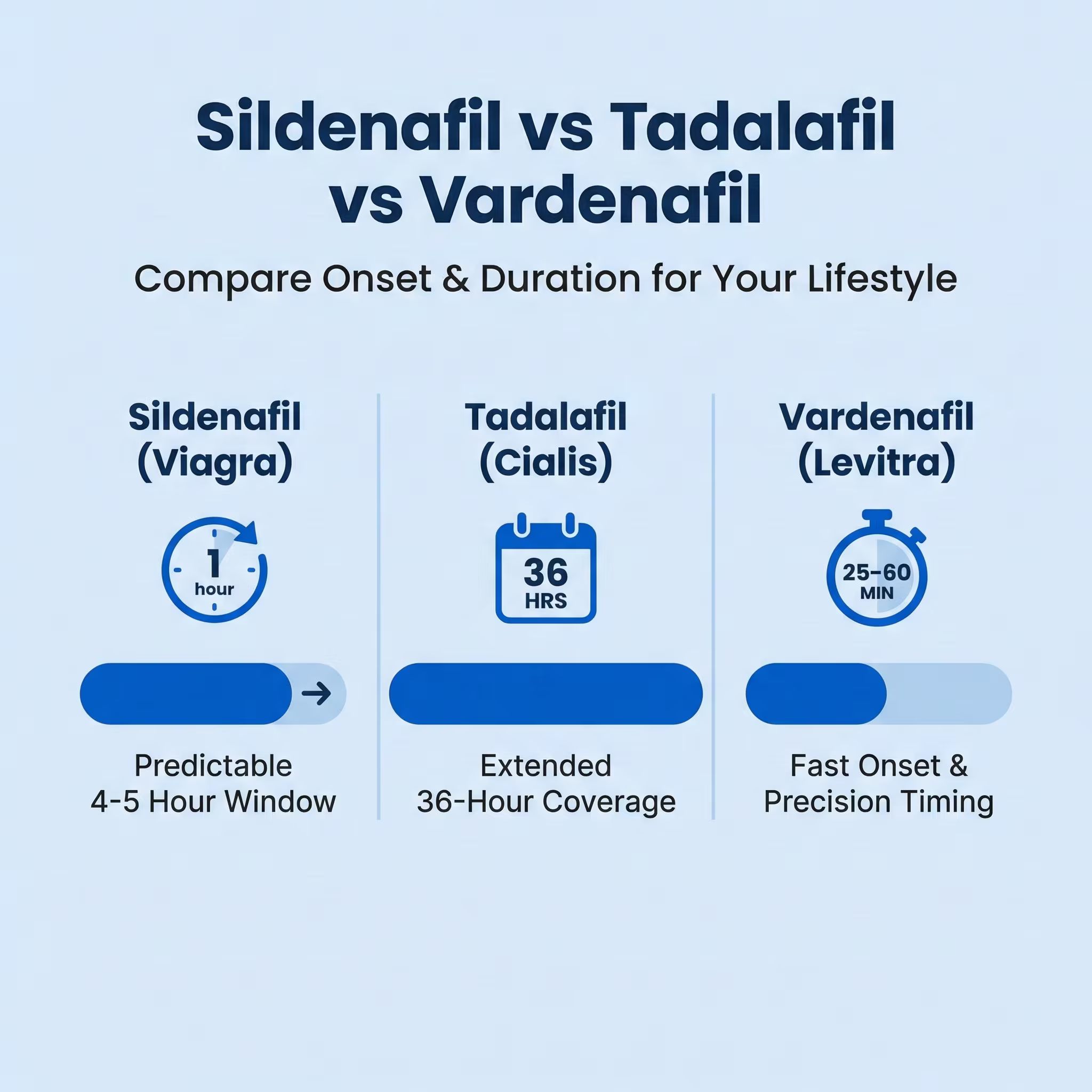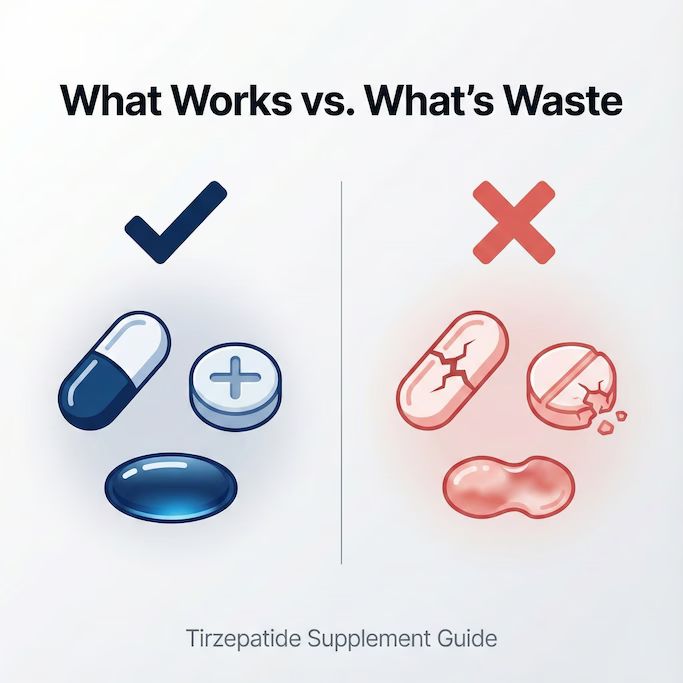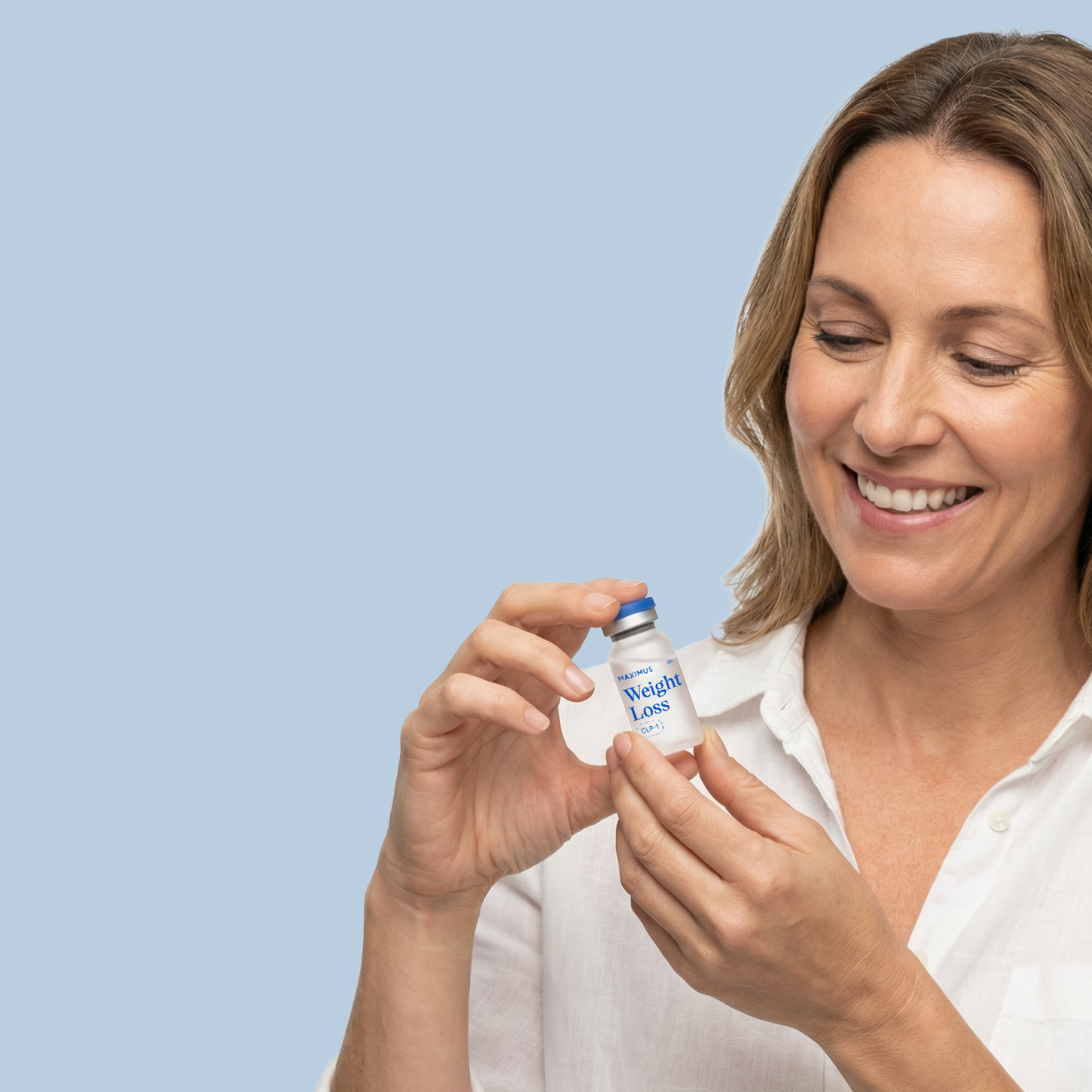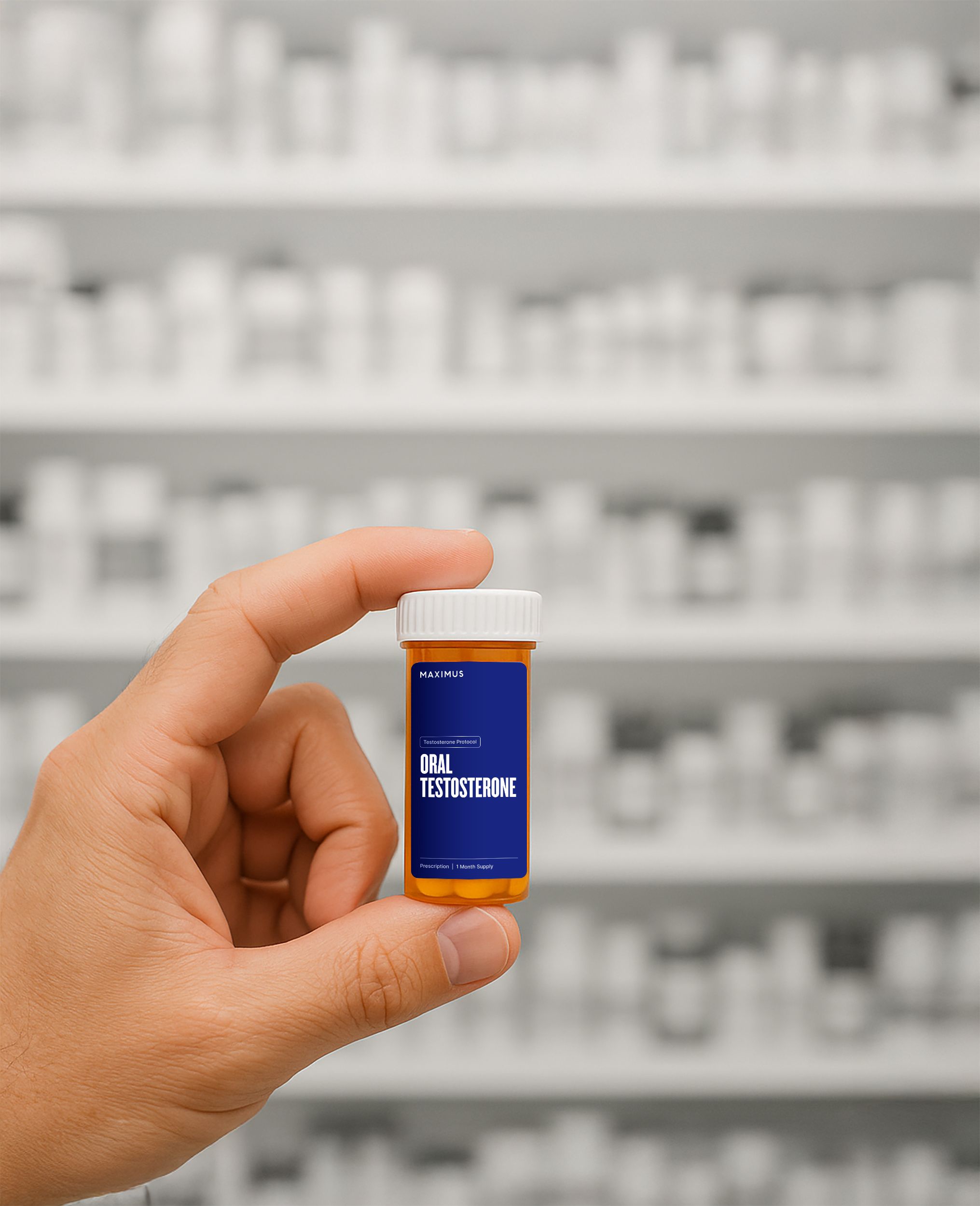Can you raise testosterone without shutting down your own production? It’s the question nearly every man asks before starting therapy.
Historically, the answer has been no. Treatments like injections often suppress the brain’s natural signaling to the testes. That means reduced levels of LH and FSH, the hormones needed for sperm production and long-term fertility. For that reason, many regimens, even our own offerings of topical testosterone and oral testosterone, include a second medication, like enclomiphene, to help keep that hormonal loop active.
But what if you didn’t need the extra medication? What if testosterone on its own could preserve that function?
We ran this retrospective analysis to find out.
Background
In our breakthrough study combining oral native testosterone with enclomiphene, we demonstrated that fertility markers can be reliably preserved in all patients with an intact HPTA. LH and FSH stayed stable, which means that reproductive signaling remained intact. You can read more about that study here.
The natural next question was: how much of that effect is driven by enclomiphene?
To find out, we looked at a group of patients who took oral native testosterone on its own, without any enclomiphene.
The Study
We reviewed charts from 34 men who received oral native testosterone monotherapy. Each had symptoms of low testosterone, including low energy, reduced libido, changes in body composition, and low qADAM scores, even if their total testosterone was technically “normal.”
Each patient took 600 mg of oral testosterone daily, alongside a meal containing at least 30 grams of dietary fat. This specific fat requirement is essential because absorption occurs through the lymphatic system. That bypasses the liver and helps mimic a more natural testosterone rhythm.
We compared hormone panels before and after treatment. The average follow-up period was just over two months.
The Results
Testosterone levels rose significantly:
- Total testosterone increased by 74.1 percent
- Free testosterone more than doubled (129.8 percent)
- SHBG dropped by 24 percent, improving bioavailability
But what was most surprising, and arguably most important, was that LH and FSH barely changed.
Despite the rise in testosterone, gonadotropins (also known as fertility markers) stayed within normal limits for every single patient. On average, there was only a slight drop (about 10 percent) in LH and FSH, and no one dipped below fertility-relevant thresholds.
Even patients with total testosterone levels exceeding 1000 ng/dL preserved hormonal signaling to the testes.
What It Means
So where does this leave us?
This isn’t about one being better than the other. It is about goals and tradeoffs.
Monotherapy works. It is simpler. It preserves gonadotropins within healthy limits in men with a functioning HPTA.
But if you are trying to maximize reproductive signaling, whether for family planning or just long-term confidence, the combination protocol offers a more targeted effect.
Both are valid. Both work. The choice depends on how precise you want to be.
Why Oral T Is Different
This preservation of the HPTA does not happen by accident. It is likely due to the unique properties of oral native testosterone:
- Lymphatic absorption bypasses the liver and creates a smoother rise in serum testosterone
- A short half-life avoids sustained suppression and allows for recovery between doses
- Meal-timed delivery helps mimic the body’s natural hormonal pulses
All of this creates a dynamic exposure profile. That may explain why suppression never fully kicks in.
Final Thoughts
This study adds to a growing body of evidence that oral native testosterone is not like traditional TRT. It improves testosterone levels dramatically. It avoids the need for needles. And most important, it preserves the hormonal foundation that supports long-term fertility.
Of course, individual responses can vary. Hormonal outcomes depend on many factors including baseline health, diet, consistency, and genetics. If you are considering oral testosterone, either on its own or combined with enclomiphene, talk with your provider. They can help interpret your labs, weigh your priorities, and guide you toward the protocol that fits your goals.
Whether you choose to take it alone or pair it with enclomiphene comes down to how far you want to push the optimization dial.
You do not need to be shut down. You do not need to lose your options. You just need the right protocol.
Reviewed by Gabriel Alizaidy, MD, MS
----
Disclaimer: The contents of this article, including, but not limited to, text, graphics, images, and other information, is for information purposes only and does not constitute medical advice. The information contained herein is not a substitute for and should never be relied upon for professional medical advice. The content is not meant to be complete or exhaustive or to be applicable to any specific individual's medical condition. You should consult a licensed healthcare professional before starting any health protocol and seek the advice of your physician or other medical professional if you have questions or concerns about a medical condition. Always talk to your doctor about the risks and benefits of any treatment. Never disregard or delay seeking professional medical advice or treatment because of something you have read on this site. Maximus does not recommend, endorse, or make any representation about the efficacy, appropriateness, or suitability of any specific test, products, procedures, treatments, services, opinions, healthcare providers or other information contained herein. Maximus is not responsible for, nor will they bear any liability for, the content provided herein or any actions or outcomes resulting from or related to its use.
----










